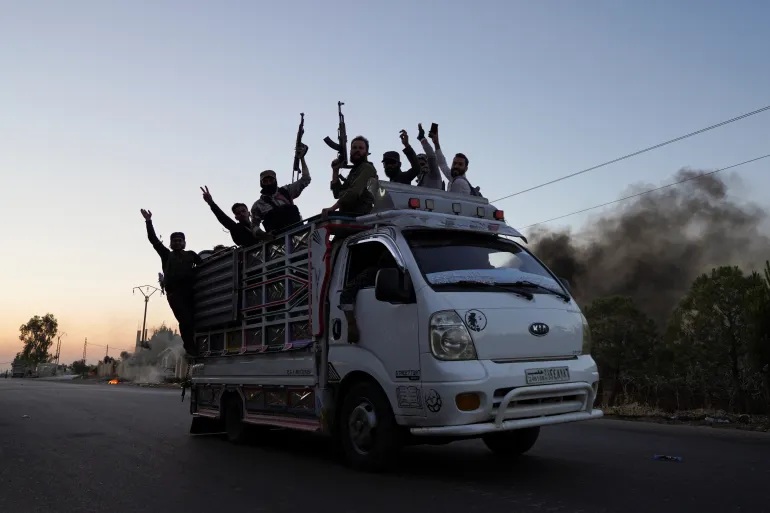The Syrian government has begun deploying its internal security forces across the turbulent southern province of Suwayda, following a surge in violence involving Druze and Bedouin factions.
The recent escalation, which has also drawn in government troops, has left hundreds dead and reignited fears of broader instability in the region.
According to a spokesperson from the Ministry of Interior, the deployment aims to restore order in Suwayda, where inter-communal violence has intensified in recent days.
The move comes on the heels of a high-level announcement from the Syrian presidency, declaring a nationwide ceasefire in a bid to quell the unrest and prevent further bloodshed.
“In view of the critical situation the country faces, and out of a deep commitment to preserving Syrian unity and protecting its people, the Syrian Arab Republic declares an immediate and all-encompassing ceasefire,” the presidential office stated on Saturday.
The announcement emphasized the importance of allowing state institutions and national forces the opportunity to enforce peace and stability on the ground.
The Syrian ceasefire declaration was issued shortly after an announcement by U.S. Ambassador to Turkey, Tom Barrack, who stated that Israel and Syria had reached a tentative ceasefire agreement.
Barrack’s message, shared on X (formerly Twitter), noted that the United States, along with Turkey, Jordan, and neighboring Arab states, supported the truce.
He called upon the country’s various ethnic and religious communities, including Druze, Bedouins, and Sunni Muslims, to lay down their arms and unite in the pursuit of a peaceful and inclusive Syrian identity.
So far, neither Syrian nor Israeli officials have publicly commented on Barrack’s statement, though signs of cautious coordination have emerged.
An unnamed Israeli official revealed on Friday that Israel had agreed to permit Syrian internal security forces limited access to the Suwayda district over the following 48 hours, citing the growing instability in Syria’s southwest as justification.
Earlier in the week, tensions escalated significantly when Israeli warplanes targeted Syria’s Ministry of Defense headquarters in Damascus.
Additional strikes were carried out in Suwayda, marking a sharp escalation in Israel’s military involvement.
Israel justified the air raids as necessary to protect the Druze minority, who make up a significant portion of Suwayda’s population, estimated at around one million in Syria and approximately 150,000 in Israel.
Israeli Prime Minister Benjamin Netanyahu has publicly referred to the Druze as “brothers,” further underlining the cultural and historical ties between the communities.
Despite the ceasefire brokered midweek by the United States, Turkey, and Arab nations, violence continued on the ground.
Israeli airstrikes on Wednesday coincided with the diplomatic breakthrough, killing at least three people and injuring dozens more.
This action threatened to derail the fragile agreement and prompted a strong response from Syrian interim President Ahmed al-Sharaa.
In a televised address early Thursday, al-Sharaa reaffirmed Syria’s commitment to safeguarding the Druze population.
He stressed that while Damascus preferred peace over confrontation, it would not shy away from defending its sovereignty in the face of Israeli aggression.
The interim president accused Israel of attempting to fracture Syria through military force and sectarian manipulation.
He asserted that the Syrian state would resist any efforts to destabilize the nation from within or without.
Violence flared once more on Friday, with fresh clashes between Druze and Bedouin tribal groups reported in Suwayda.
In response, Syrian authorities dispatched a specialized force to the province, tasked with enforcing calm and protecting civilians in the predominantly Druze region.
The situation in Suwayda remains volatile, reflecting the complex layers of Syria’s decade-long conflict.
This now involves not only internal strife but also intricate regional and international dynamics.
While the ceasefire offers a glimmer of hope, much depends on the willingness of all parties, both domestic and foreign, to uphold the fragile peace and work toward a long-term resolution.
As Syria faces one of its most delicate moments in years, the path forward remains uncertain.
But with concerted diplomatic effort and a genuine commitment to unity, the embattled nation may yet find a way to heal.







